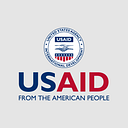When Every Drop Counts
Human milk bank gives hope to moms and babies in Uganda
On a sunny morning in Mbale, Uganda, mothers line up in a crowded space that serves as a human milk bank. These women are here to donate their breast milk to help other mothers who are struggling to feed their babies. The space may look small, but the impact felt by babies, mothers, and widowed fathers is life-changing.
Zainab Byohona is one of these women. She was looking forward to welcoming her healthy baby, but when she delivered her baby preterm at 30 weeks weighing just less than 3 pounds, everything changed for her. Unable to breastfeed her low-birth-weight baby, the baby quickly fell sick.
Like many mothers, Zainab’s stress made it difficult for her to express breast milk. Her baby was at high risk of malnutrition, which could lead to stunted growth, developmental delays, and even death. Fortunately, Zainab delivered her baby at Mbale Regional Referral Hospital, where a groundbreaking initiative, the Human Milk Bank, has become lifesaving for many.
This scenario is all too common in resource-limited settings where advanced nutritional interventions for preterm infants are often inaccessible. A 2018 study led by Dr. Kathy Burgoine, the neonatal lead at Mbale Regional Referral Hospital, highlighted the severity of malnutrition among preterm babies in the region, with a staggering 86.5% suffering from malnutrition by the time they were discharged from the hospital.
To combat these alarming statistics, the hospital, Born on The Edge charity, and USAID launched the Nourish to Nurture program, providing nutritious meals to mothers in the Neonatal Unit to enhance their breast milk production.
This initiative laid the groundwork for the establishment of a sustainable human milk bank, the sixth of its kind in sub-Saharan Africa, which was launched in April 2023 and it is playing a major role in saving lives of moms and babies.
Since its inception, the human milk bank has received tremendous support, with 119 mothers donating 38.1 liters of breast milk. The donors are women who have delivered their babies at Mbale Regional Referral Hospital and have excess milk production. Once the nurses educate them about donating breast milk, properly screen them, most mothers are willing and happy to donate.
This donor human milk has been crucial in providing nutrition and immunity to 94 small and sick newborns, including Zainab’s baby, whose health has improved significantly under the care of the hospital.
Zainab expressed her gratitude, saying, “The human milk bank was a lifeline for my baby. The donated human milk from other mothers saved my baby’s life.”
Support from USAID has been instrumental. Through the USAID Mbale Government-to-Government program, the hospital bought essential equipment, including freezer systems and backup power for milk sterilization, which are crucial for ensuring the safety and efficacy of donated human milk.
Additionally, USAID’s Uganda Health Activity has empowered health workers through mentorship programs. In one year, 12,220 health workers received training in infant and young child feeding practices, including breastfeeding counseling.
The nurses are also given training of trainers, so that more lactation consultants like Ayebale Gorret, a health worker at Mbale Regional Referral Hospital, are trained in special feeding techniques. This comprehensive support continues to transform newborn care, making an impact on the lives of countless infants and their families.
Ayebale has witnessed firsthand the result of these interventions. She emphasizes the transformative role of the milk bank in saving lives, and most importantly supporting mothers like Zainab through lactational support and education.
Dr. Burgoine reflects on the profound impact of the milk bank:
“We are so grateful to USAID for the support rendered to the milk bank in the form of this robust freezer system.
This support has made human milk banking safe, affordable, feasible, and sustainable in this setting. We can now store the breast milk safely, and the small and sick newborns admitted in our neonatal unit are able to be adequately fed — on to their recovery.
Moreover, this neonatal unit is situated in a low-resource setting, and the mothers that deliver before term can go back home with healthier babies.”
At Mbale Regional Referral Hospital, where an average of 10,000 babies are delivered annually, efforts continue to expand, offering hope for a brighter future for newborns across the eastern region.
With ongoing support and commitment, initiatives like the Human Milk Bank can serve as models of sustainable healthcare solutions, ensuring that every newborn, regardless of circumstance, has the opportunity to thrive from the very start of life.
About the Authors
Dr. Obbo Stephen is Hospital Director at Mbale Regional Referral Hospital, and Ayida Abate is a Communications Advisor with USAID’s Mission in Uganda.

